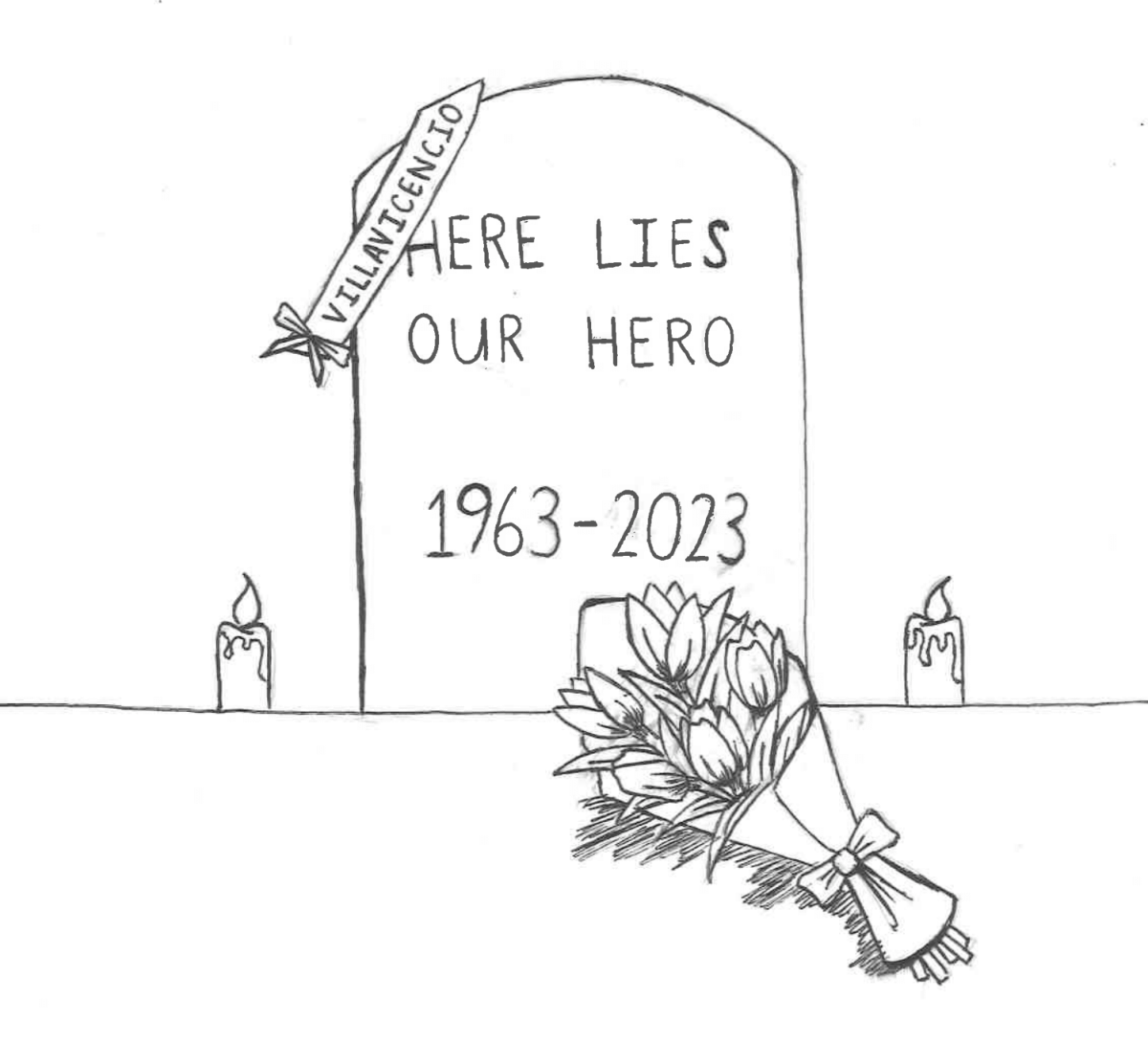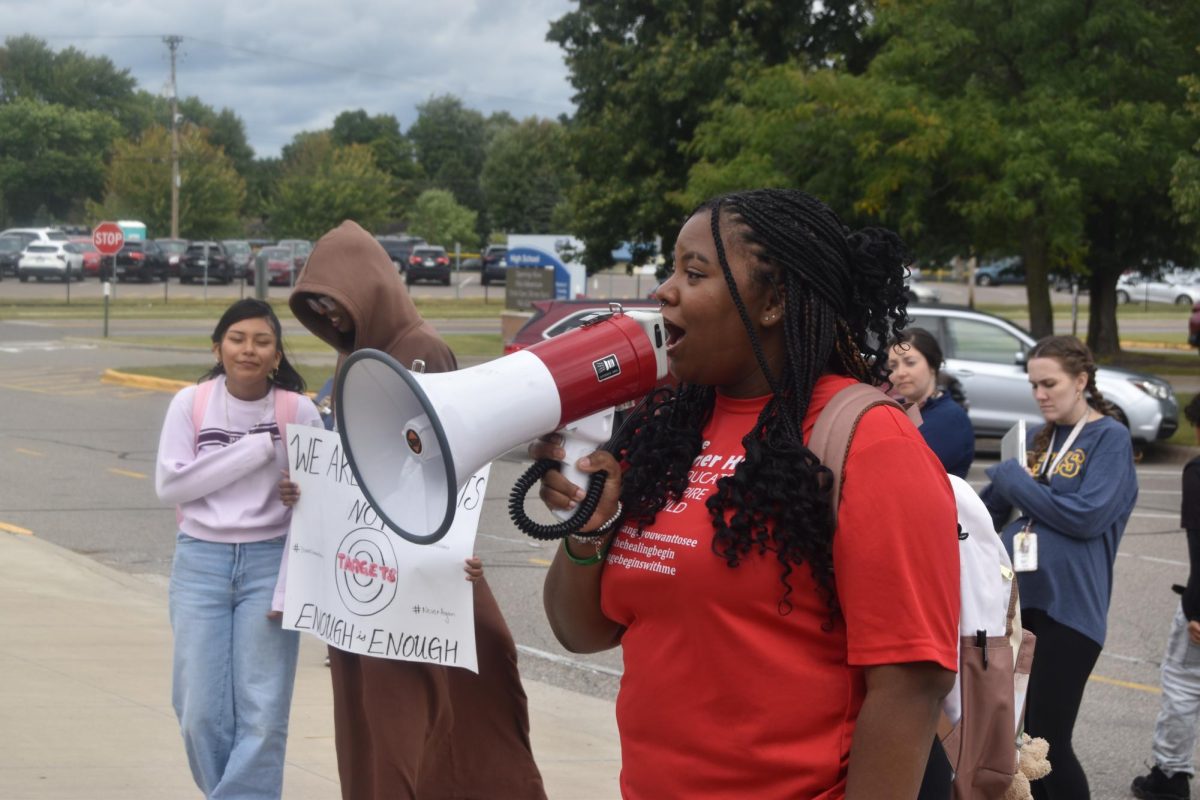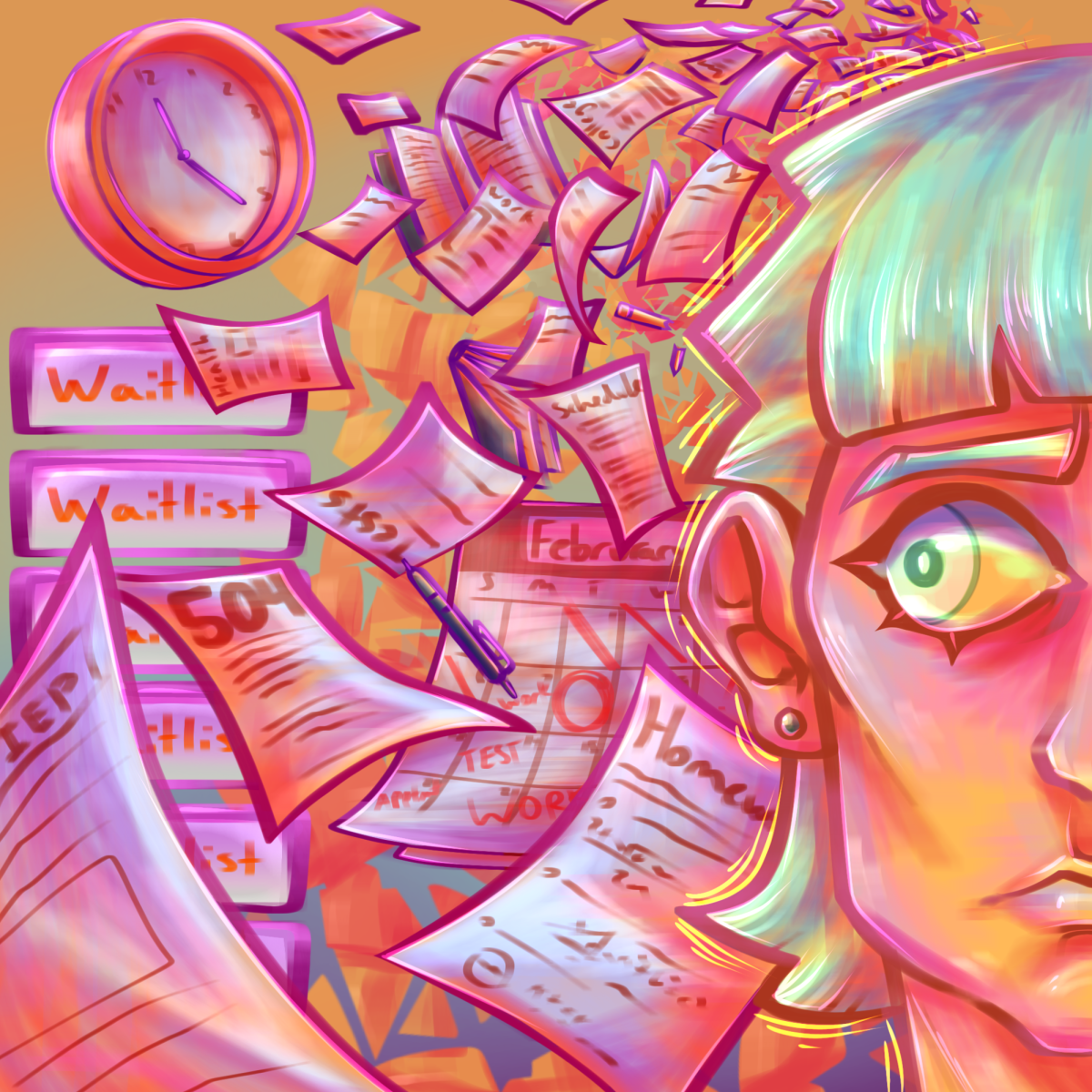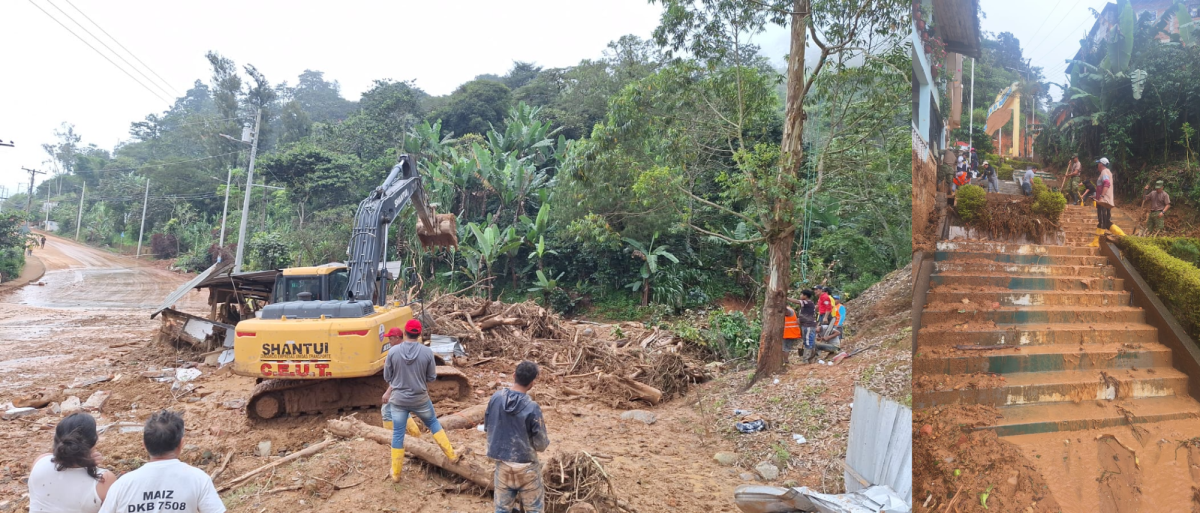Fernando Villavicencio, one of the top candidates for the Ecuadorian presidency was assassinated this August, less than two weeks before the nation’s election, leaving many citizens in shock and worried for what the future of Ecuador will look like.
Bolivar Armijos, Xavier Hervas, Yaku Perez, Luisa Gonzales, Otto Sonnenholzner, Jan Topić and Daniel Noboa were among the other candidates. Bolivar Armijos is a lawyer and politician who has served as president of the National Council of Rural Parochial Governments of Ecuador (CONAGOPARE), Xavier Hervas is a businessman and politician who ran previously in the 2021 Ecuadorian presidential election, Yaku Perez is a politician as well as an indigenous and human rights activist that also previously ran in the 2021 election, Luisa Gonzales is a lawyer and politician who was elected to the National Assembly 2021 legislative elections representing the Province of Manabi, Otto Sonnenholdner is a radio broadcaster, politician and economist who as well served as the 50th Vice President of Ecuador, Jan Topić is a businessman, economist and politician and Daniel Noboa is a politician and businessman. Villavicencio stood out in particular for many Ecuadorians for his experience as both a loyal trade unionist and former journalist. He later went on to become a member of Ecuador’s National Assembly in the spring of 2021 before setting his sights on the presidency.
In his campaign, Villavicencio spoke out against corruption and gangs, he publicly discussed the link between organized crime and federal government officials, referring to Ecuador as a “narco-state” run and dependent on trading illegal drugs, which has been rarely discussed by any of the other candidates. Villavicencio has also shown his support in protecting the environment and resolving climate change issues, proposing to give tax incentives in return for protecting the environment.
Growing up in a poor family in Alausi, a largely rural canton with little access to basic utilities like piped water and phone service, Villavicencio got a first-hand taste of life in Ecuador for the common family, and he was very open about his disagreements with those in higher power about how to progress as a nation, including former Ecuadorian president Rafael Correa, who was convicted of corruption and charged with eight consecutive years in prison after a $7.5 million bribery scandal involving state contracts in 2017.
With such a big platform and having placed second in polls within about a month of the launch of his campaign, Villavicencio was perceived by many as the hope of the country — someone who reached the hearts of Ecuadorians all around the country not just as an aid to the current state of Ecuador but also as a potential figurehead for the betterment of its future.
On August 9, however, Villavicencio was shot three times in the head as he was leaving the Movimiento Construye political rally held at the Colegio Anderson — a university located in the capital city of Quito. Nine others were injured at the scene, including one of the suspects. Villavicencio was pronounced dead shortly afterward in a nearby clinic at the age of fifty-nine.
Within just hours of the incident, six Colombian men were arrested for the crime. A criminal group by the name of “Los Lobos” admitted to the crime in a video that surfaced online, but it was later revealed to be fake. The six detainees, who were known hitmen and had previously been released on bail following other charges, were later killed in the Litoral Penitentiary in Guayaquil on October 6, just before the Prosecutor’s Office was going to issue a statement concluding the investigation on Villavicencio’s murder.
This couldn’t have happened at a worse time, seeing how crime rates and gang violence in Ecuador have been substantially increasing in recent years, according to the Council on Foreign Relations. Villavicencio himself had made an earlier statement revealing that he had been receiving constant death threats from the Sinaloa Cartel, the latest of which was just a week prior to the attack. Even though Villavicencio was being guarded at the time of his assassination, his wife Verónica Sarauz expressed her discontent with how Villavicencio’s security failed him. The amount of violence in Ecuador is only getting worse and leaving a nation to worry for the safety and well-being of their loved ones.
“A lot of it has to go back to the history of Latin America and how especially U.S. involvement in Latin America since the early nineteen hundred, but especially during the Cold War where The United States was trying to contain the spread of communism,” Social Studies teacher Ms. Kristen Sinicariello said. “They inserted themselves into politics in Latin America and backed dictatorships and trained military officials to the point where it created a lot of instability and took power away from the sovereign nations themselves. People in Ecuador deserve free and fair elections just like everyone else. I think we’re seeing a threat to democracy all over the world. As a community and as a society, how do you find it within the country to resort back to democracy and democratic practices rather than trying to outsource and have The United States get involved again or other outlying powers?”
Following his untimely death, the Construye Party that Villavicencio was a part of chose to put fellow former investigative journalist Christian Zurita as a candidate on the ballot, replacing Villavicencio. Villavicencio’s image still lived on throughout the remainder of the campaign, and crowds gathered to mourn his loss at the public memorial and funeral mass held on August 11 in Quito. One of the Construye Party’s members, Andrea Gonzales, made a statement sending out her condolences mentioning that a street in Villavicencio’s hometown would be named in his honor.
The Fernando Villavicencio Foundation was also created to help stop organized crime in the country and all around the world. Villavicencio was seen by a number of Ecuadorians as one-of-a-kind and irreplaceable to the people that believed that with him, an understanding between the Ecuadorian citizens was that the future of Ecuador would have been in good hands with Villaviencio.
“Fernando Villavicencio would’ve been a great president for Ecuador; it’s unfair for what happens to the good politicians,” Bernie Vasques (12) said.
Despite the vast amount of support Zurita was receiving even when he was carrying Villavicencio’s memory with him throughout his campaign, there weren’t nearly as many people on his side as there had been during Villavicencio’s campaign. Zurita ended up placing third in the first round elections held on August 20, receiving 16.4% of the votes. The candidates that made it onto the second round of elections were leftist lawyer Luisa Gonzales, who placed first with 33.6% of the votes, followed by former banana industry businessman Daniel Noboa in second place with 23.4% of the votes. The second round of elections took place on October 15 and the results had a surprising turnaround, as Noboa was then in the lead, winning the election with 51.83% of the votes while Gonzales had 48.17% of the remaining votes.
Although the elections came to an end, crime in Ecuador has only risen day by day. The average Ecuadorian citizen would say that crimes are happening in every corner and that it’s become unavoidable. The death of Fernando Villavicencio, a huge political figure and activist who sought to free Ecuador of the corruption and organized crime it has been bombarded with for several decades, meant that people’s hopes and dreams for their country have died with Villavicencio.









